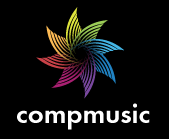Blog
Final Report
CompMusic has finished, and our funding agency, ERC, asked us to write a brief report. Here is it.
Achievements along the main objectives/activities
The CompMusic project has been a big and long project with many achievements, impossible to summarize here. For a presentation of all the results please check the project website. Here we try to just highlight the main achievements.
The main objectives of the project, as stated in the initial proposal were:
Technology and Multiculturality
[Article published in the daily newspaper La Vanguardia on Sunday 17th 2016. English translation of the original text written in catalan.]
Two evenings of Chinese traditional music
Last December (2015), Barcelona’s Conservatori Municipal de Música hosted two sessions of Chinese traditional music, the first one devoted to the silk and bamboo music genre and the second one to jingju (Beijing opera). For this occasion, two music formations based in London were invited, the Silk & Bamboo Ensemble and the UK-Chinese Opera Association. Each of them offered a presentation of their respective music genre, explaining its main characteristics and demonstrating some aspects of it, and afterwards a full performance. This event was the result of the joint efforts of several local institutions, namely Barcelona Confucius Institute Foundation, Casa Asia, the Conservatori Municipal de Música de Barcelona, CompMusic and the Phonos Foundation. You can find the hand programmes (in Spanish) for these events in the links below, and the corresponding videos in this Youtube list.
Nīla Saṅgīta - An evening of Indian Classical Music and Dance
Saṅgītarasikā, with the support of CompMusic organized a concert titled "Nīla Saṅgīta": An evening of Indian Classical Music and Dance, at Arts Santa Mònica, La Rambla 7, Barcelona on the 25th June, 2015.
The ensemble included Núria Cabo (Kathak dance), Amit Mishra (tabla), Jordi Prats (sarod) and Jacopo Pacifico (bansuri). The ensemble opened the show with the instrumental performances of the bansuri and the sarod, both accompanied by the tabla. The Kathak recital, in which the dancer performed the sacred love stories of Radha and Krishna, brought all the artists together on stage.
The videos from the concert are on YouTube, with the links below:
Sharing our research on jingju music in China
Last May, Xavier Serra, Zhang Shuo and Rafael Caro spent more than two weeks in China visiting different companies and universities with the aim of sharing our research on jingju music and the hope of finding possible collaborators for CompMusic. From May 15th to May 28th we visited five universities, three music conservatories, three companies, one theatre academy and one research centre, giving fifteen talks both in Chinese and English to audiences ranging from computer engineers to musicologists, musicians and music aficionados (you can find here an abstract of the presentation, the slides and related videos). In each of these venues we received a warm welcoming and interest from the audience.

Shuo, Xavier and Rafael in front of the Shanghai Conservatory of Music.
Gundecha Brothers in Barcelona
Dhrupad is an ancient vocal genre of Indian Art music. Gundecha Brothers, who are among the most active exponents of Dhrupad music, visited Barcelona for a lecture demonstration and a concert. They also visited the MTG before the concert for a discussion with the CompMusic team. They were very supportive of the activities of CompMusic and gave us valuable suggestions.
The lecture demonstration and the concert were held at the Conservatori Municipal de Música de Barcelona. The lecture demonstration was tiltled "Making of Voice and Raga in Indian music" and aimed to explain several concepts of Dhrupad. It provide valuable insights into aspects of voice, melody and rhythm in Dhrupad. Prof. Xavier Serra presented an introduction to CompMusic project. The concert was very well received by an audience of over 400. The event was organized by CompMusic, Phonos, Casa Asia, Samgitarasika and Conservatori Municipal de Música de Barcelona with support from several organizations.
JNMR special issue on Indian and Turkish music

Mid-term report
CompMusic has reached the midpoint and our funding agency, ERC, asked us to write a brief report on our progress. Here it is.
--------------
In CompMusic we want to advance in the field of Music Information Research by approaching a number of current research challenges from a culture specific perspective. We want to develop information modelling techniques of relevance to several non-Western music cultures and in the process we want to contribute to the overall field of MIR.
The work carried out during the first half of the project, from July 2011 until now, can be grouped under six headings: (1) choosing the music repertoires and building the research team, (2) identifying and defining the research problems and methodologies, (3) building the research and test corpora, (4) characterizing melody and rhythm, (5) developing an overall evaluation strategy, and (6) disseminating the project goals and results.
3rd CompMusic Workshop dedicated to Indian music
On December 13th, 14th and 15th, we organized the 3rd CompMusic workshop together with several other events at IIT-Madras (Chennai, India), all of them related to the work we are doing on Carnatic and Hindustani music. On the 13th we organized a research workshop to present current research results, on the 14th we organized a special seminar aimed to the general public and dedicated to the tools we are developing for the exploration and appreciation of Carnatic music, and on December 15th there was a lecture demonstration by the mridangam virtuoso Dr. Umayalpuram K Sivaraman. The slides and video recordings of most of the presentations are available online.


